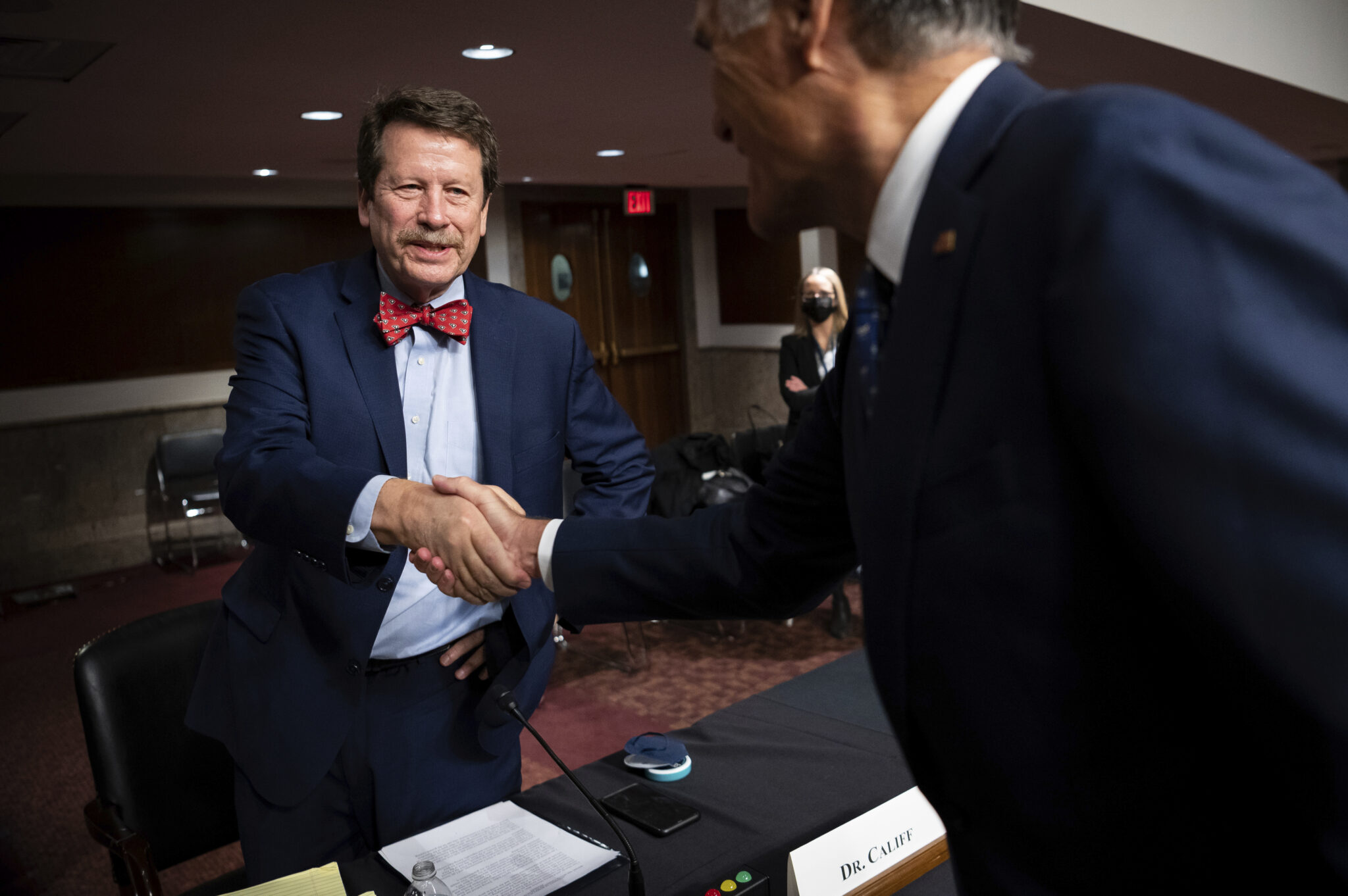
Senate health committee again offers its support for FDA commissioner nominee Rob Califf
Rob Califf, the famous cardiologist from Duke University, is likely to return to the top of the FDA, this time under the Biden administration.
At his confirmation hearing Tuesday, Democrats and Republicans on the Senate health committee offered their support for Califf, with Chair Patty Murray (D-WA) stressing the need for an experienced leader, like Califf, who can ensure that science comes first.
Unlock this article instantly by becoming a free subscriber.
You’ll get access to free articles each month, plus you can customize what newsletters get delivered to your inbox each week, including breaking news.